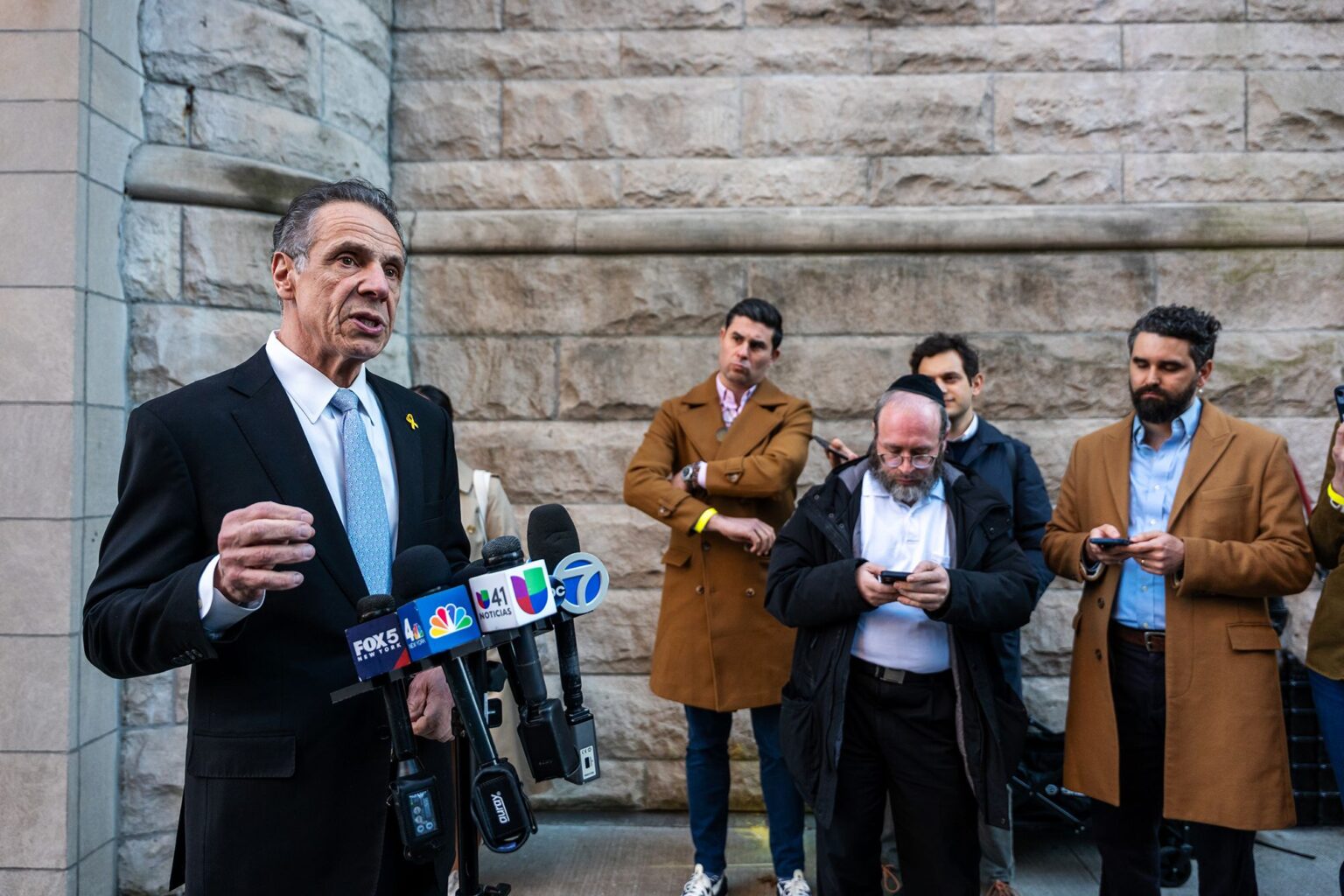When Personal Tragedy Meets Political Resilience: The Complex Legacy of Andrew Cuomo
In recent years, moments where political figures confront deeply personal and painful experiences have become increasingly rare. Just last week, Adrienne Adams, the Speaker of the New York City Council and a mayoral hopeful, publicly shared a poignant moment at a podium beside a framed photograph of her father. Her father, who succumbed to COVID-19 five years ago, passed away after being transferred from the overwhelmed Elmhurst Hospital in Queens-the same hospital where Adams now stood. As tears welled in her eyes, Adams recounted her desperate pleas to then-Governor Andrew Cuomo for life-saving vaccines, which she claimed were repeatedly denied to her community. Her emotional appeal aimed to remind voters of the pandemic’s human toll and to urge them to reject politicians who fail to prioritize the needs of marginalized populations.
Disputed Narratives and Broader Political Implications
Cuomo’s spokesperson swiftly dismissed Adams’ account as “completely false,” asserting that the governor never refused vaccines to New York City residents and that claims of hospital mismanagement are “ridiculous.” However, by highlighting this specific, contentious episode, Adams was also addressing a larger issue within Cuomo’s gubernatorial tenure. His nearly 11-year record includes notable achievements but also controversial decisions that have left some neighborhoods, like Elmhurst, with mixed outcomes. Despite these controversies, Cuomo has maintained a commanding lead in polls among New York’s Black and Hispanic voters, revealing a complex voter landscape that often balances admiration with criticism.
The Voter Dilemma: Loyalty Versus Accountability
In communities from Brooklyn’s Park Slope to other parts of the city, a paradox persists: many voters acknowledge Cuomo’s flaws yet remain inclined to support him. This phenomenon is especially evident among liberal voters who express concern over allegations of sexual harassment from eleven women-claims documented in a report by Letitia James, New York’s Attorney General, though vehemently denied by Cuomo. They also criticize his administration’s directive that required nursing homes to admit COVID-positive patients during the height of the pandemic. Despite these issues, many voters find themselves contemplating whether to overlook these controversies in favor of stability and perceived leadership.
Psychological Factors Influencing Voter Choices
Political strategist Basil Smikle explains this internal conflict: “Voters often wrestle with their values-whether supporting a #MeToo movement or prioritizing Black Lives Matter-against immediate concerns like quality of life and city progress. They ask themselves: Which issue weighs more right now?” Similarly, a campaign strategist for Cuomo’s opponent describes a troubling trend: “Focus groups reveal that some people admit Cuomo’s role in nursing home deaths but still feel a personal affinity for him. It’s a perplexing dynamic.” Cuomo’s campaign defends his decisions, asserting that his directives followed federal guidance, and no credible evidence has proven that his policies directly increased COVID-19 fatalities.
The Power of Familiarity and Political Longevity
Cuomo’s resilience can largely be attributed to his long-standing presence in New York politics, following in the footsteps of his father, Mario Cuomo. “Familiarity should not be mistaken for loyalty,” Adams emphasizes passionately, recalling her own grief and the perception that many deaths could have been prevented under Cuomo’s leadership. Her words reflect a broader sentiment: voters often cling to recognizable figures, even amid controversy, because of their established presence and perceived stability.
Public Perception Versus Political Reality
While Cuomo’s name recognition remains high, it does not necessarily translate into unassailable support. Many residents, especially those less engaged with political insiders, prioritize leadership qualities over scandals. As Bill Clinton famously noted, voters tend to favor leaders who appear steady and reliable, even if they lack perfect integrity. Cuomo’s admiration for Clinton’s style has influenced his own approach, emphasizing media presence and image management. His campaign has raised over $9 million through a supposedly independent super PAC, primarily investing in television advertising. Yet, with limited public appearances and few debates-his last debate was nearly seven years ago-the campaign’s strategy seems risk-averse as the city approaches the final month of campaigning.
Shifting Dynamics as Election Day Approaches
Recent polls suggest the race is tightening. In surveys conducted by PIX11, Emerson College, and The Hill, Cuomo’s closest challenger, Zohran Mamdani, a democratic socialist, has narrowed the initial voting gap to just 12 percentage points, with some models indicating a potential victory in the final round. Meanwhile, Adrienne Adams has gained momentum, with her support doubling to approximately 11%, bolstered by over $2 million in public matching funds from the city’s campaign finance board. During upcoming debates scheduled for June 4 and June 12, Adams plans to emphasize policy issues but also intends to confront Cuomo directly, highlighting the full scope of his pandemic-era leadership. “Exposing the reality of Cuomo’s actions during this crisis resonates with voters,” she states. “Pretending everything was okay is no longer acceptable.”

